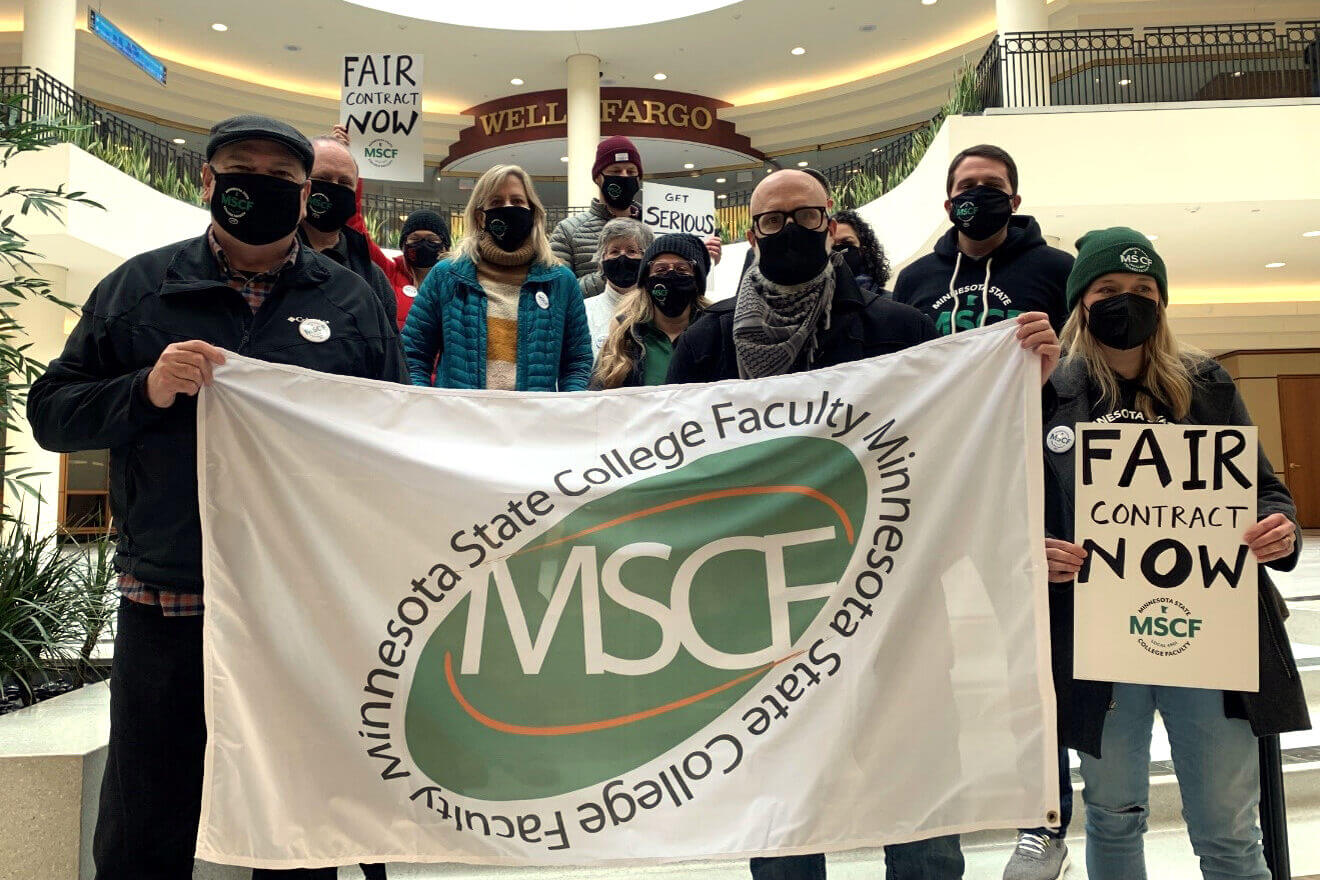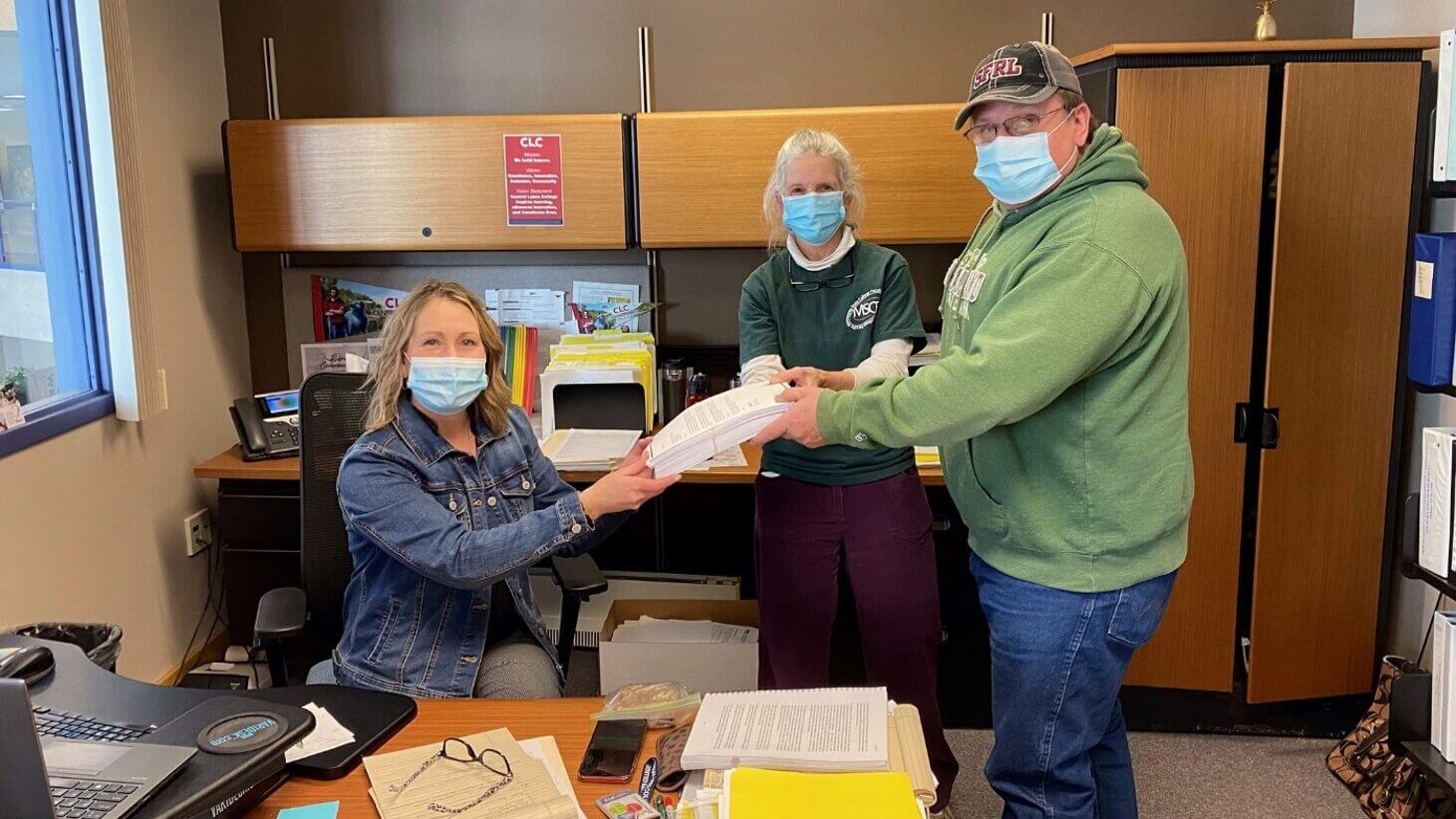The Minnesota State College Faculty, the statewide union of the two-year Minnesota State colleges, knew they wanted to get more members involved in the negotiations process for their last contract. Enter the Bargaining Action Teams.

“The BAT is a place for members to come and get their voices and concerns heard, but it’s an organizing opportunity too,” said Nicole Bietz, who recently took office as the MSCF secretary but had been a BAT leader on the Inver Hills Community College Campus. “The number one concern of our members is the stuff in the contract. This has been an avenue for the rank-and-file to have a more direct voice in the negotiations process. We had a more traditional approach in years past. We would survey members before and there were updates, but there hadn’t been a lot of two-way communication until the final settlement. This gave us the ways to engage around priorities as it was going along.”
There were 53 members across the state who became BAT leaders and actively participated in the process. BAT leaders identified teams on their campus of around 10 members per team to connect with on a regular basis about what was happening in negotiations. The BAT leaders who have regular debrief sessions with the negotiations team both to share information and solicit feedback. The BAT leaders also coordinated actions on campuses as negotiations progressed, such as petitions and letter-writing campaigns.
“After each meeting (with the negotiations team), we reached out to our small local faculty group to give them updates, ask for their feedback—which included a prioritization of values when it came to the contract—and, sometimes, had specific asks,” said Faith Ericson, who served as a BAT leader at St. Cloud Community and Technical College. “I know that faculty on my campus have good ideas and their own passions, so the opportunity to be a conduit between these faculty and the MSCF contract bargaining team was too good of an opportunity to pass up.”
MSCF leaders wanted to be intentional about spreading out the work and the access to union knowledge.
“Feedback from the leaders is that they felt more engaged with the process. It gives another avenue to give voice to people who hadn’t had a formal role in the union,” said Bietz.

Being more involved in the negotiations process is what drew Jesse Dahl to the program. Dahl, an electrical maintenance and construction instructor at Hibbing Community College, said he hopes more members become more knowledgeable about the negotiations process.
“This was easy to participate in, just getting a better understanding of the terminology from the negotiations team,” he said. “And then I was bringing that back to the people I see and work with on my campus.”
Getting that chance to talk to people on his campus about their issues was a huge takeaway of the program for Dahl.
“I could have bigger conversations with them about the real issues,” he said. “We have the tech faculty and the liberal arts faculty, who are often split, even in the contract. So programs like this give us all a better understanding of every side and how we can be better together.”
Ericson said that sense of unity was also true on her campus because of the BAT program.
“It worked. It encouraged fight. It encouraged unity,” she said. “I think important employment concerns were revealed and supported in ways that may not have happened in the same way without this process. It was a transparent way to make sure the bargaining process was representative of the membership.”
With their current contract settled, MSCF leadership is looking to continue this program and grow it in the next round.
“We are doing some information sessions, like bargaining 101,” said Bietz.
Other information sessions include topics such as open bargaining and student-centered bargaining.
“We want to focus on what can we do as members and as a union to support what happens in that negotiations room,” said Bietz.
Bietz and the other MSCF leaders know there’s still a lot of work to be done.
“From a member engagement standpoint, the BAT leaders this negotiations round was huge. There was still a lot of disappointment in what our contract settlement was. But what that’s doing is creating the infrastructure and pressure points for the work moving forward,” she said.
That work on what’s next for contract negotiations will be a major focus of work for the MSCF statewide leaders, as well as the BAT leaders.
“As we prepare for the negotiations, we can use our BAT now to engage with members, think about our proposals and how we engage and organize members ahead of time,” Bietz said. “We can pause and reflect and do some education on how we want it next to go. MSCF has traditional structural processes. The BAT program opened up these spaces for more accountability around bargaining.”


